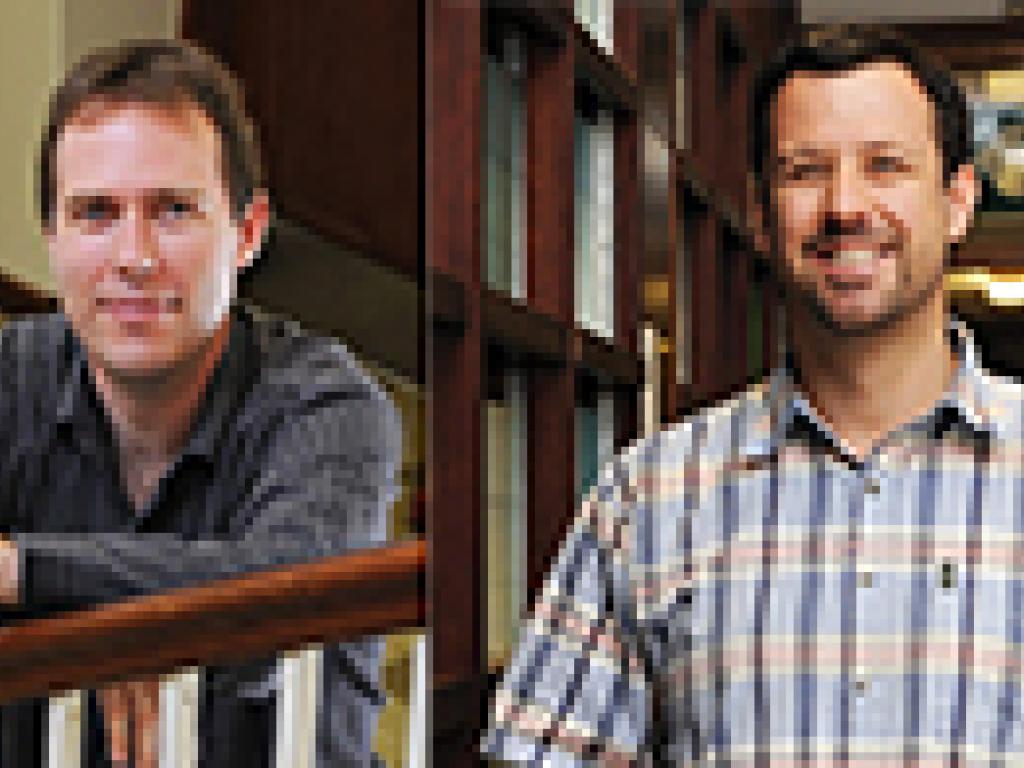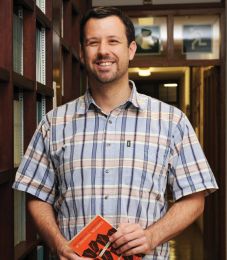Distinguished Teacher Awards 2014


"The thing for me is I really like to have the students engaged with the material I teach," he explains. "It is very easy for students' attention to lag if you are the kind of lecturer who speaks throughout the entire lecture."
For Gain it is important to create the type of environment where students are not afraid to ask questions. He does in-class exercises, and breaks large classes into smaller groups, to make asking questions less intimidating.
"For example, in larger groups I use polling exercises where students have to respond using polling sheets," he explains. "Because everyone is doing it, it is less intimidating than venturing an opinion, but it still means students have to grapple with a response to the material, which is far more effective than just asking them to think about it."
One of the biggest challenges in teaching computer science specifically is the huge class disparity in experience and exposure.
"We have such a wide range of abilities coming into the course. On the one hand you have people who have been doing hacking at home or IT studies at school, and on the other you have people who haven't touched a computer. Teaching for such a broad range is really tricky. You can't address that entirely in a class setting."
To try and straddle this gap, Gain runs tutorials and workshops for students who are struggling, and a programming contest for more advanced students.
Beyond the actual subject matter, Gain believes students also learn other skills: "Problem-solving is one of the skills we teach indirectly by teaching computer science. A big problem can be really overwhelming, but if you break it down into smaller pieces, which is how you learn to program, you can do almost anything; and this applies more widely in life. Something that people might not associate with computer science is creativity. Just as an engineer would build a bridge, we build this intangible information artefact, and there is a lot of creativity that goes into it."
What does he find most satisfying about teaching? "In science there is this kind of chain, going back thousands of years – of knowledge building on knowledge – and the same applies to people. I had people imparting their knowledge to me and inspiring me to carry on the subject, and I try to do the same for my students. So I feel like I am a part of that chain; and if I was missing or my students were missing, the chain; in a sense, would be broken. So there is a massive tradition of science and advancing science that I feel a part of."
An irrepressible passion for their discipline, a genuine enthusiasm to impart knowledge and the desire to make a difference are three of the standout qualities shared by six academics who have been honoured with awards for their teaching efforts.

He recalls that although he was an expert in the subject matter, he didn't have a clue about teaching, and learnt a lot from those early experiences.
"One of those early lessons for me was that very few learn just by listening to someone else; you learn best by doing," he recalls. "The big mistake that I made in those early days was thinking that I could stand in front of the class and give a wonderfully clear exposition of physics and expect them just to get it. I remember getting those first test scripts back and realising that they hadn't got it at all!"
This realisation still informs his pedagogy today ? he creates multi-dimensional, active experiences for students.
"You have to know where your students are coming from and what motivates them. One of the courses I teach is physics for non-physics majors; and those students are not particularly passionate about physics, otherwise they would be majoring in it, so I have to meet them where they are at and choose an approach that best sparks their interest."
He tries to do this by making connections with the real world and linking the physics to what they might be majoring in. Knowing that no two people learn the same way, he also tries to create variety in his approach.
"What works for one student, might not work for another, so you need to have as big a toolkit as possible of methods for teaching: using demonstrations, simulations, videos and stories."
Using these tools also allows him to break down barriers and be more approachable. "I think the most important thing is to be true to who you are," he says of his teaching style. "Students pick up on that, and they recognise when you are genuine. I am boyishly excited by my discipline, and that comes through. Lots of students are not terribly excited about physics but at least they appreciate that I am, and it helps to spark their interest and motivate them. They also see when you are putting in a lot of effort, and almost feel morally obligated to do the same."
An irrepressible passion for their discipline, a genuine enthusiasm to impart knowledge and the desire to make a difference are three of the standout qualities shared by six academics who have been honoured with awards for their teaching efforts.
